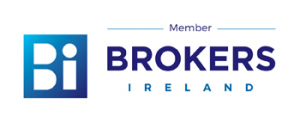In this month’s Construction Magazine, Susan writes about the need to reflect back on the previous year in order to plan more effectively.
While much of the writing at this time of year is focused on the outlook for 2021, I think for retirement savers and investors, it is useful to look back at the year we are saying a not-so fond farewell to, to understand the lessons we should learn. If you are saving for your retirement, you are likely to be invested in a fund that has some weighting in equities (i.e. the stock market), and this has made many headlines this year.
 The MSCI World Index is a standard benchmark for global equities and is used to represent a broad cross-section of global stock markets. If you look at the performance of this index from 1st January to the date at the time of writing, you will see that the performance is +2.49%. This includes a decline in performance by -30% in March. At that time, it was hard to imagine the potential for a positive result in global stock markets in 2020. When speaking with pension schemes and life assurance companies, the bulk of the instructions to switch to cash were during the March and April period, with the result that many investors who switched to cash may have missed the rebound.
The MSCI World Index is a standard benchmark for global equities and is used to represent a broad cross-section of global stock markets. If you look at the performance of this index from 1st January to the date at the time of writing, you will see that the performance is +2.49%. This includes a decline in performance by -30% in March. At that time, it was hard to imagine the potential for a positive result in global stock markets in 2020. When speaking with pension schemes and life assurance companies, the bulk of the instructions to switch to cash were during the March and April period, with the result that many investors who switched to cash may have missed the rebound.
If you take investor A, who invests €1,000 on 1st January 2020, in a fund that tracks the index, the value of their holding on 17th November is €1,025. Investor B also invested €1,000 on 1st January 2020, in the same fund that tracks the index. Investor B switched to cash on 12th March, before the bottom of the market. Investor B was relieved to see an upturn in markets and by June felt comfortable buying back in, doing so on 8th June. The value of Investor B’s holding on 17th November is €829. A and B are fictional entities in order to make a point. However, they are not fictional behaviours. It can be very tempting to protect your investment from losses, but mostly the decision is made after a considerable drop in the market, thereby
buying the loss.
ARE THERE ANY REASONS TO SWITCH TO CASH?
If you are in the early or mid-point of your retirement savings journey, it is unlikely that any reactionary investment decision you make will benefit your fund in the long run. There are times when leaving the market is warranted, of course. If you are very close to retirement, you may need to review your investment strategy depending on how close you are to drawing down your benefits. Individual financial advice is valuable. Seeking advice can ensure you make a decision that is suitable for your specific circumstances.Time in the market is better than trying to time the market. No matter what the economic outlook for 2021 and beyond is, continuing to fund for retirement is important. The following points will help you to protect your fund:
- Maintain discipline in your investment strategy: If possible and if advised, stay invested. Avoid making an emotional decision.
- Volatility is a normal part of investing:The ups and downs are a regular feature of investing in the market, some dips are lower and longer than others if you are in it for the medium and long term you should be able to weather any storms.
- Cash funds deliver no returns and are not a good long-term investment strategy: The monetary and fiscal policies that have benefited the economy over the last decade or so have been unfavourable to deposit interest rates, little to no growth possible in cash for the foreseeable future.
- Time in the market is better than trying to time the market: Trying to get out before the dip and back in before the bounce is incredibly difficult, even for professional investors. It rarely pays off for the inexperienced as outlined in the example above.
- Diversification is key: As the well-worn cliché goes, it is best not to put all your eggs in one basket, and this rings true with investing. Even if you follow the above guidance, it only really works well if you are not holding one single stock.
If you are concerned about the performance of your fund or investment, you should contact your financial advisor.
Here to help you navigate your way to financial security.
The Milestone Advisory team are qualified financial services consultants. We specialise in helping professionals in the construction sector and related industries. Our team will work with you to review your finances, explaining your options in clear English.
No jargon – just the facts.
For further information please contact Susan O’Mara via email or phone: (01) 406 8020. Milestone Advisory DAC t/a Milestone Advisory is regulated by the Central Bank of Ireland.





